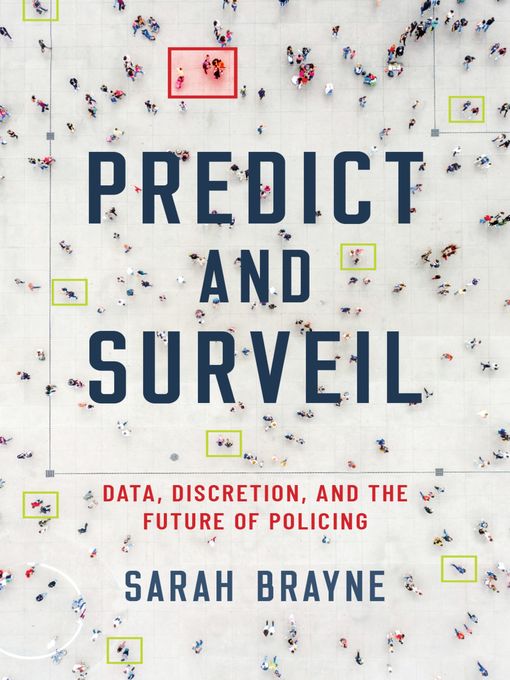-
Creators
-
Publisher
-
Release date
October 12, 2020 -
Formats
-
Kindle Book
- ISBN: 9780190684112
-
OverDrive Read
- ISBN: 9780190684112
-
EPUB ebook
- ISBN: 9780190684112
- File size: 7647 KB
-
-
Languages
- English
-
Reviews
-
Kirkus
September 15, 2020
A scholarly examination of the nexus of law enforcement and big data. Brayne, a professor of sociology at the University of Texas, combines data analysis and sociological and ethnographic research to explore some of the issues and controversies surrounding the country's police system. While noting that there are more than 2.3 million people incarcerated in the U.S., she also points out a similarly disturbing statistic: "a third of this country's adult population--over 70 million Americans--has a record on file with criminal justice agencies." She continues, "although the rise of 'mass incarceration' receives the most attention, no one is incarcerated without first having contact with the police." Though academic, this is a sharp book--and particularly timely given the current state of the public's (dis)trust of police officers. Brayne explains the difference between "dragnet surveillance"--looking at everyone and deciding who is worth pursuing--and "directed surveillance," in which investigators pick a target (a person or place) "deemed suspicious." Either method uses tools that the police have adapted from the military or private companies, many of which stretch the boundaries of privacy laws. The author notes that the data brokering business is a $200 billion industry, so it's not surprising when some of the basic tenets of "law and order" go by the wayside. Brayne also breaks down the "stages of predictive policing...collection, analysis, intervention, and response." If anything goes awry in one of those segments, innocent people could be punished and arrested--or killed. Although the prose is fairly dry, with a focus on algorithms and concepts like "suspicion calculus," the book shines a fresh light on old problems while also taking into consideration the many complexities introduced by technology. Brayne's conclusion is not only direct, but important, as she walks readers through opportunities to craft change internally via institutions but also redefine what successful policing looks like. A thoughtful consideration of modern policing.COPYRIGHT(2020) Kirkus Reviews, ALL RIGHTS RESERVED.
-
Loading
Why is availability limited?
×Availability can change throughout the month based on the library's budget. You can still place a hold on the title, and your hold will be automatically filled as soon as the title is available again.
The Kindle Book format for this title is not supported on:
×Read-along ebook
×The OverDrive Read format of this ebook has professional narration that plays while you read in your browser. Learn more here.

